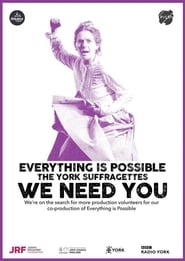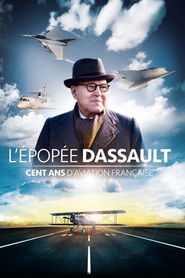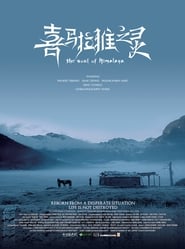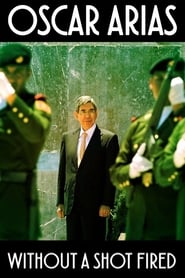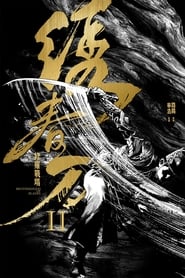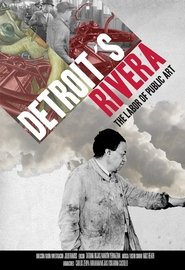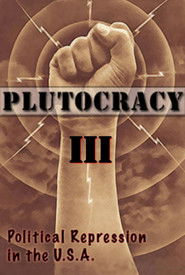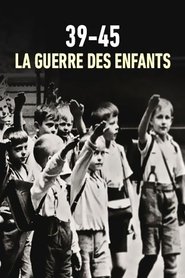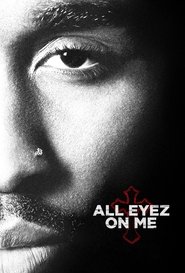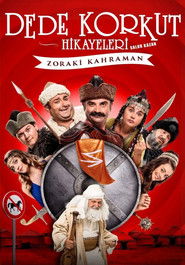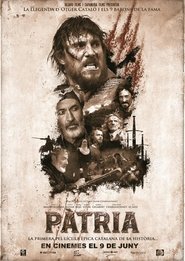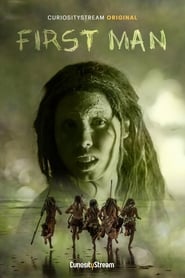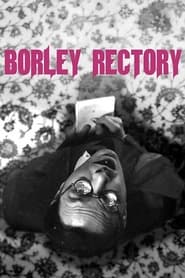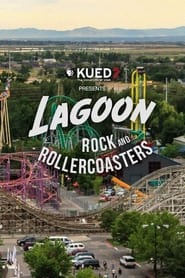New History Movies on Tub Tv - Page 312
-
Everything is Possible: The York Suffragettes
2017
It is 1913. Women across the country, outraged by inequality and prejudice are beginning to rise up and demand change. In York, a revolution is about to take place as an ordinary Heworth housewife risks her life and her family to join the fight. And she's not alone. Across the city, women run safe-houses, organise meetings, smash windows and fire-bomb pillar boxes. It's dangerous, it's exhilarating, it's ground-breaking: and in 2017 the amazing story of York's suffragettes will be told for the first time. Everything is Possible is York Theatre Royal and Pilot Theatre's latest large-scale community production. The play was performed on a spectacular scale with a cast of around 150 and a choir of 80. The performance started outdoors before moving onto the stage at York Theatre Royal. We raised the purple, green and white flags and cried "Votes for Women!" to sold-out audiences. -
The Dassault Saga: One Hundred Years of French Aviation
2017
star 9.5In 1916, while France was bogged down in trench wars, a young engineer named Marcel Bloch was inventing a revolutionary propeller, the Eclair propeller. It would prove very effective in air combat. Today, Dassault Aviation, named after the moniker its founder took on after the war, is among the jewels of the worldwide aeronautics industry. From astonishing growth to unexpected crises, the Dassault group's destiny is closely linked to the history of France and the saga of modern aviation. As it marks its first century of existence, the company continues to fly in civil and military aviation, still following the path of its founder's visionary spirit, Marcel Dassault. -
The Soul of Himalaya
2017
The Soul of Himalaya
2017
With the high development of human civilization there is less and less pure land on the earth. The conflict between humans and nature keeps intensifying. Many primitive cultures and beliefs are gradually disappearing. "The Soul of Himalaya" is a story of the Lhoba people's legends and customs. The film portrays a warrior's journey to save an ancient tribe whose way of life is threatened. -
Josef Mengele: Hunting a Nazi Criminal
2017
He was one of the most notorious Nazi war criminals, infamous for his deadly experiments on twins. But at the end of WWII, he simply disappeared. Despite a global manhunt by Mossad and the allies, he would die a free man, 34 years later, in Brazil. Who was Dr Mengele? What did he do after the war? And why was he never caught? We speak to those who knew him and profile the 'angel of death'. -
Oscar Arias: Without a Shot Fired
2017
star 6This is the story of a tiny country that made a decision to do something that no other country had ever done -- it decided to abolish its army and declare peace to the world. And this is the story of a young boy who grew up in that country, and how he ended up challenging -- and sometimes even convincing -- the greatest powers in the world to follow Costa Rica's example. "Oscar Arias: Without a Shot Fired" is a Don Quixote-like saga with great historical touchstones -- Ronald Reagan and Mikhail Gorbachev, Cold War politics and Communism, Central American War and Peace. It follows a slight, academic, and most unlikely hero over the course of more than fifty years, as he travels the world in a quest to stop the spread of the weapons of war. In the end, it is a story about the triumph of reason, of the sparrow triumphing over the eagle, and how the impossible dream can sometimes come true. -
Brotherhood of Blades II: The Infernal Battlefield
2017
star 6.8An imperial guard searches for the truth behind a conspiracy that framed him and his partners. The proof of his innocence lies with a wanted woman named Bei Zhai... but will she reveal what she knows? In this intense prequel to BROTHERHOOD OF BLADES, the only thing he can truly trust is his sword. -
The Wind Over Tamatai-koku / Santé!! ~Only the Finest Wine for You~
2017
The Wind Over Yamatai-koku: Ancient Japan was full of small territories, so new wars kept starting without any respite. Among those territories, Yamatai-koku was a fertile area which believed in the importance of union, but as its influence began to spread the rival Kuna-koku begins to desire its rich resources, and attacks Yamatai-koku continuously. This show is a magnificent historical fantasy centering on the new top combi, Asumi Rio and Senna Ayase. / Santé!!: “Santé” is the French word meaning “cheers!”. Wine is beloved around the world. Just as you enjoy wine, we hope you will be intoxicated by this extremely unique, beautiful, and extravagant Takarazuka revue show. -
Operation Foxley: The Assassination of Hitler
2017
Throughout his time as head of the Nazi party, Adolph Hitler evaded numerous attempts to assassinate him. However the secret Operation Foxely came the closest to succeeding. Based on declassified World War II documents from the British secret service, this award-winning film reconstructs the detailed plan that nearly resulted in the murder of the notorious German Fuhrer, and why it failed. -
Detroit's Rivera
2017
Detroit's Rivera
2017
star 7A documentary on the process of production of Diego Rivera's Detroit Industry Frescoes and the murals' agitated social context during the years of the Great Depression. The documentary's remarkable archival montage explores the links between industrial labor, public art, and industrial cinema under the exigencies of Fordism. -
Plutocracy III: Class War
2017
The early struggles of the working class are placed under a microscope in Plutocracy III: Class War, the latest chapter in an exceptionally well produced series which explores the origins of America's growing economic divide. -
The Russian Revolution
2017
star 6.3Starting in 1881 this film shows the personal battle between Lenin's Ulyanov family and the royal Romanovs that eventually led to the Russian revolution. -
Cinecittà Babilonia: Sex, Drugs and Black Shirts
2017
star 6.5The story of Italian cinema under Fascism, a sophisticated film industry built around the founding of the Cinecittà studios and the successful birth of a domestic star system, populated by very peculiar artists among whom stood out several beautiful, magnetic, special actresses; a dark story of war, drugs, sex, censorship and tragedy. -
All Eyez on Me
2017
All Eyez on Me
2017
star 6.7All Eyez on Me chronicles the life and legacy of Tupac Shakur, including his rise to superstardom as a hip-hop artist, actor, poet and activist, as well as his imprisonment and prolific, controversial time at Death Row Records. Against insurmountable odds, Tupac rose to become a cultural icon whose career and persona both continue to grow long after his passing. -
Dede Korkut Hikayeleri Salur Kazan: Zoraki Kahraman
2017
star 4.3Will Salur be able to rescue his loved ones who have been taken captive by the bad guys? Will the captive tribe be able to defeat the bad guys? In Salur Kazan: The Reluctant Hero, the fairy tales we all know are presented to us again in a humorous and modern language. -
Pàtria
2017
-
First Man
2017
First Man
2017
star 8.3Man’s early ancestors set off to conquer the world, to explore the unknown, to adapt to every environment. And one day, to conquer fire – a discovery that made them invincible. They built shelters. They transformed their environment. But still this did not slake their thirst for more. They sought to fathom Nature’s mysteries. They invented stories to explain the inexplicable. Now, they are Men. Here, for the very first time in television history, is the saga of our origins, told through the story of one single family - an epic journey upon which the latest scientific discoveries shine an exciting new light. -
Set in Stone
2017
Set in Stone
2017
an intuiting of the core feelings of the Moses story relating to the current capitalistic global system all told through a hybrid of stop motion animation and live action. -
Borley Rectory
2017
Borley Rectory
2017
star 5.1An animated documentary chronicling famed paranormal investigator Harry Price’s research at Borley Rectory, renowned as the ‘most haunted house in England’. -
Lagoon: Rock and Rollercoasters
2017
A fun, nostalgic look at the rich history of Lagoon Amusement Park, which has enchanted visitors for generations with its rides, rock concerts, and family fun for more than a century.
 Netflix
Netflix
 Amazon Prime Video
Amazon Prime Video
 Apple iTunes
Apple iTunes
 Apple TV Plus
Apple TV Plus
 Disney Plus
Disney Plus
 Google Play Movies
Google Play Movies
 Paramount Plus
Paramount Plus
 Hulu
Hulu
 HBO Max
HBO Max
 YouTube
YouTube
 fuboTV
fuboTV
 Peacock
Peacock
 Peacock Premium
Peacock Premium
 Amazon Video
Amazon Video
 The Roku Channel
The Roku Channel
 AMC+
AMC+
 Kocowa
Kocowa
 Hoopla
Hoopla
 The CW
The CW
 Vudu
Vudu
 Starz
Starz
 Showtime
Showtime
 PBS
PBS
 Pantaflix
Pantaflix
 FXNow
FXNow
 Tubi TV
Tubi TV
 Kanopy
Kanopy
 Comedy Central
Comedy Central
 Crunchyroll
Crunchyroll
 Microsoft Store
Microsoft Store
 Redbox
Redbox
 Sun Nxt
Sun Nxt
 ABC
ABC
 DIRECTV
DIRECTV
 Crackle
Crackle
 Fandor
Fandor
 Plex
Plex
